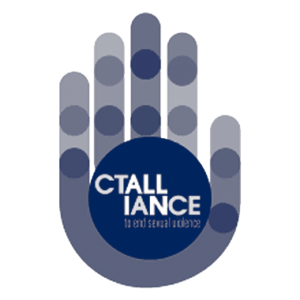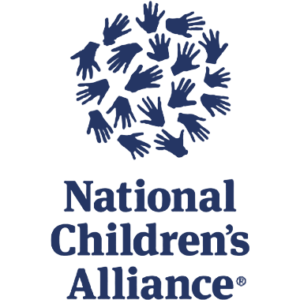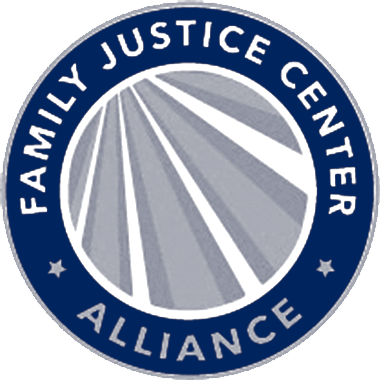
MEDIA CONTACT:
Casey Gwinn, President
Alliance for HOPE International
619-980-2565
casey@allianceforhope.com
September 27, 2024
Sacramento, CA
On September 27th, Governor Gavin Newsom signed SB 989 (Ashby, Rubio) into law in California. Joanna’s Law was sponsored by Alliance for HOPE International. SB 989 is the first statute in the country to set standards for addressing and investigating suspicious death cases where women die after a prior history of domestic violence. Alliance President Casey Gwinn said right after the Governor’s signing, “Today, we made history in memory of Joanna Hunter”.

From Left: Joyce Bilyeu, Patricia Hunter, Senator Ashby, Joe Hunter, Faith Whitmore, and Casey Gwinn
SPECIAL THANKS to the Sacramento Regional Family Justice Center (Joyce Bilyeu, David Cropp, and Faith Whitmore) and for their advocacy for this bill which will be referred to as “Joanna’s Law” in honor and memory of Joanna Hunter who died in 2011 in Solano County, California. The case was too quickly ruled a suicide without adequate investigation and without an autopsy ever being performed. SPECIAL THANKS also to ABC reporter Andie Judson for her coverage of this journey.
California Senator Susan Rubio and Senator Anna Caballero co-authored SB 989 with Senator Ashby. Senator Ashby’s presentation of SB 989 to the California Senate in April is an excellent overview of Joanna’s Law.
Researched by Alliance CEO Gael Strack and written by Alliance President Casey Gwinn, SB 989, authored by Senator Angelique Ashby, makes the following legislative findings about suspicious death cases:
(a) Suspicious death cases, where there is a history of being victimized by domestic violence, are inadequately investigated at times, when a premature decision is made to determine the cause of death as suicide even before a comprehensive investigation has been completed by law enforcement professionals.
(b) Domestic violence-related homicides are highly susceptible to staging or alteration of the death scene before investigators can conduct a scene investigation, which hampers the responsibilities of the coroner or medical examiner and compromises the ability of investigators to evaluate death cases adequately.
(c) Research has identified 10 red flag markers in suspicious death cases, where there is a history of being victimized by domestic violence, that should be evaluated in any death investigation.
(d) An independent right of family members of homicide victims has been created in federal law to obtain information, access victim services, and request an independent review of initial findings or the investigation of the death of their family member but the law applies only to those cases under federal jurisdiction. It is the intent of the Legislature to provide victim services and support to family members in suspicious death cases and support family members who seek a second opinion on the death of their loved one at no cost to any public agency whenever practicable.
SB 989 goes on to add family members of lost loved ones to those having a right to death records when there is a prior history of domestic violence, recognizes family members in suspicious death cases as survivors of crime deserving of victim services and support, and adds apparent suicides and apparent accidental deaths with a history of prior domestic violence as deserving of special consideration for autopsies by medical examiners and coroners. SB 989 then adds the Alliance’s Ten Red Flag Factors in Suspicious Death cases to California law to raise awareness about evaluating these factors each death case. The ten research-based factors include:
(1) The decedent died prematurely or in an untimely manner.
(2) The scene of the death gives the appearance of death due to suicide or accident.
(3) One partner wanted to end the relationship.
(4) There is a history of being victimized by domestic violence that includes coercive control.
(5) The decedent is found dead in a home or place of residence.
(6) The decedent is found by a current or previous partner.
(7) There is a history of being victimized by domestic violence that includes strangulation or suffocation.
(8) The current or previous partner of the decedent, or child of the decedent or the decedent’s current or previous partner, is the last to see the decedent alive.
(9) The partner had control of the scene before law enforcement arrived.
(10) The body of the decedent has been moved or the scene or other evidence is altered in some way.
All ten suspicious death factors existed in Joanna Hunter’s case, but the case was never investigated as a homicide by the Solano County Sheriff’s Department.
Alliance President Casey Gwinn praised the Legislature and the Governor today. “This bi-partisan bill will raise awareness about staged crime scene and suspicious death cases where there is an identifiable history of domestic violence and is a historic step forward in our work on ‘hidden homicide’ cases in California and across the country. If investigators miss the truth in these cases, they need to fix it, but our real goal is to see these investigations done right the first time. These types of cases, apparent suicides or accidental deaths, should be investigated as homicides until proven otherwise, whenever there is a prior history of domestic violence.”
Alliance CEO Gael Strack thanked Patricia Hunter, Joanna’s mom, and Sacramento Fire Captain Joseph Hunter, Joanna’s brother, and other family members of lost loved ones in cases across the country that supported SB 989. Patricia and Joe were zealous advocates on behalf of Joanna. Joe Hunter said, “First responders all need to know the ten factors to be evaluated in a suspicious death case. With SB 989, we can prevent killers from getting away with murder.” Joe Hunter never gave up on honoring Joanna and provided powerful testimony during the legislative process. Patricia carried a picture of Joanna to every hearing. Gael Strack made a promise to Patricia and Joe and all the families with lost loved ones. “We will never stop advocating for the rights of family members and their loved ones to advocate for complete investigations and for justice for their mothers, sisters, and daughters. Family members are robbed of hope when investigations of death cases are rushed and when mistakes are made. Today, we are ensuring their loved ones did not die in vain. And we now have a statute every state can model and adopt.”
The amazing team at the Sacramento Regional Family Justice Center also praised the Senate and Assembly unanimous votes and shared their vision for Family Justice Centers across the country becoming aware of these types of cases and becoming the team everyone needs them to be in asking questions and advocating for justice. The photo below commemorates the first meeting in Sacramento when the Sacramento FJC multi-disciplinary team began the journey to pass SB 989 in California.

From Left: ABC Reporter Andie Judson, Casey Gwinn, David Cropp, Gael Strack, Patricia Hunter, and Faith Whitmore
Sgt. David Cropp (ret.), LCSW: “Family Justice Centers across the country collaborate with the most passionate professionals from all disciplines. The FJC leadership team is nothing short of inspirational. This passion and inspiration, coupled with persistence and hope, can achieve miracles. All of us have the ability to allow family members to see and feel what an ‘alliance for hope’ is really all about – surrounding the hurting with hope, inspiration, passion and persistence—always.”
Joyce Bilyeu, Director of Client Services: “Family Justice Centers are a lifeline for families navigating the profound pain of suspicious death cases. Centers play a crucial role in supporting families through the most challenging times, providing a comprehensive network of resources, advocacy, and compassion. By standing alongside families, we ensure that their voices are heard, justice is pursued, and healing becomes possible. Our commitment is to turn tragedy into action, helping to drive meaningful legislative change and provide unwavering support to those in need. It is hard work, you must have patience, be persistent, never give up, and, most importantly, listen to survivors”.
Faith Whitmore, CEO: “Collaboration, dogged determination, and compassionate companionship are cornerstones for our team as we support family members seeking justice for their loved one. It is a blessing and a privilege to walk alongside them and share the power of hope.”
The Alliance’s Justice Project now evaluates suspicious death cases on behalf of families, law enforcement agencies, and Family Justice Centers working with families where a death is suspicious. The Alliance also hosts a national course called, “Hidden Homicides: Overcoming the Challenges of Staged Crime Scenes.”
See more about the Alliance’s work on Hidden Homicides on Dateline:
In Memory of Joanna Lynn Hunter
October 27, 1974 – October 6, 2011







